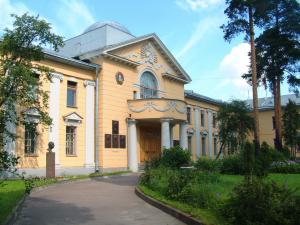A short history of the Ioffe Institute
4 Jun 2010
-
Alexander Petrov, Russian Domestic Agency
In the early twentieth century, the Physical and Technical Institute, later named the Ioffe Institute after its first Director, was founded on the banks of the Neva in St. Petersburg for the development of what was then a relatively young science in Russia—physics. The fascinating 90-year history of this institute that survived a turbulent century in Russia to become a world-class physics research centre, home to five Nobel Prize winners, is retraced for us by Alexander Petrov from the Russian Domestic Agency for ITER.
Click here to read the full article...in English:
Click here to read the full article...in Russian:
download the doc
download the doc


